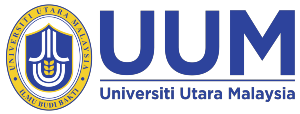ASPIRATIONS FOR HUMAN SECURITY
 UUM ONLINE: Ensuring human security calls for an approach that is both inclusive and equitable, one that not only includes the participation of the government but also the collective participation of community organisations, the private sector, international institutions and academia.
UUM ONLINE: Ensuring human security calls for an approach that is both inclusive and equitable, one that not only includes the participation of the government but also the collective participation of community organisations, the private sector, international institutions and academia.
According to Universiti Utara Malaysia (UUM) Deputy Vice-Chancellor (Academic and International), Prof. Dr Shahimi Mohtar, active collaboration across sectors is vital to guarantee policy creation and community involvement that addresses a wide range of needs and aspirations.
He said that, from the standpoint of human security, finding a solution to a security problem requires participation and mutual understanding from individuals and social groups at the grassroots level.
"The European Union (EU) introduced the doctrine of human security through its European Security Strategy (ESS). This concept has been expanded beyond the ESS and incorporated into the EU's Indo-Pacific strategy which requires cooperation and consideration from all stakeholders.
"It is envisaged that by incorporating the human security paradigm in the EU's Indo-Pacific strategy, it can lead to an increase in regional awareness, easing regional tensions and supporting the EU's objective of maintaining global stability.
"In the long run, we are all working towards the establishment of a partnership between the EU and countries in the region that is more equitable and sustainable. In addition to providing financial support, the new approach places emphasis on capacity building through the development of health care system and the reduction of disaster risk," he said.
When discussing Southeast Asia, it is crucial to acknowledge the significance of solutions that are driven by the community. The region is home to resilient communities that have flourished despite facing challenging conditions. By leveraging local expertise and actively engaging with grassroots organisations, we can develop strategies that are both culturally and contextually relevant.
He explained that the purpose of this dialogue is to address key issues that affect the security, prosperity and well-being of all individuals while also exploring the effective ways to enhance cooperation, share best practices and how to effectively mobilise limited resource.
"We must strive to find sustainable solutions that empower local communities, promote inclusive development, and protect the rights and dignity of all individuals regardless of background," he said during the Indo-Pacific Dialogue @ Kedah Whither Human Security: ASEAN and the EU Perspectives event that took place at UUM SOIS Auditorium Hall.
In addition, he expressed gratitude to the delegation for their unwavering commitment and support in promoting human security in Southeast Asia, an endeavour that fosters values of compassion, peace and unity.
The programme was jointly organised by the School of International Studies (SoIS), the School of Computing (SoC) in collaboration with the Centre for ASEAN Regionalism, Universiti Malaya (CARUM), the Asia-Europe Institute (AEI) in collaboration with the Embassy of the Kingdom of the Netherlands and the European Delegation in Malaysia.
